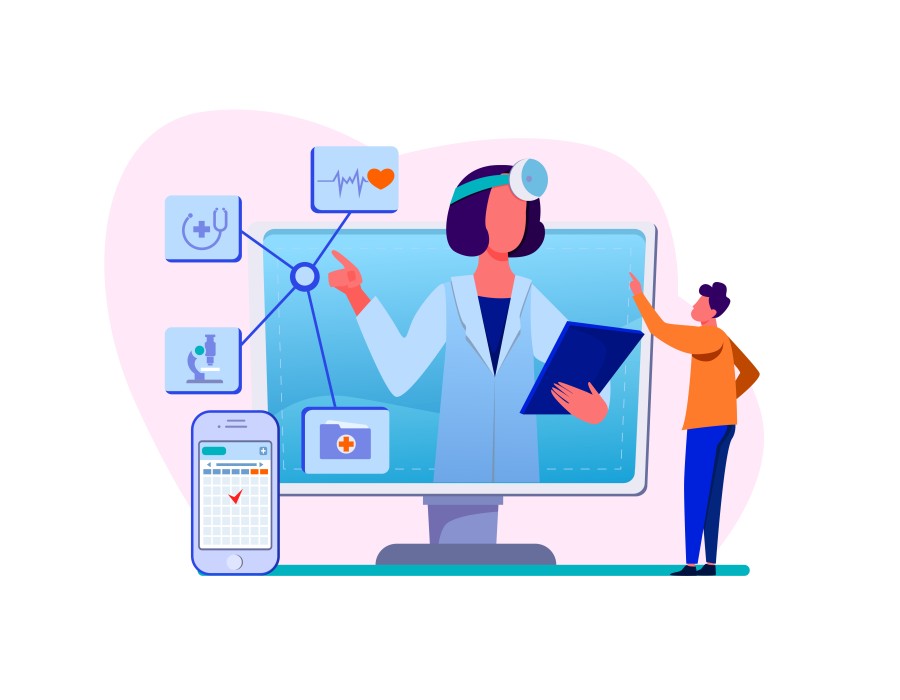Introduction
Heart disease remains a leading cause of death worldwide, affecting millions and placing immense pressure on healthcare systems. Managing this chronic condition requires ongoing monitoring, patient adherence, and seamless care coordination. Fortunately, advancements in chronic disease management software are transforming how healthcare providers and patients tackle heart disease, improving outcomes and saving lives. From remote monitoring to AI-driven insights, technology empowers care teams and patients alike to take control of heart health.
The Challenges of Managing Heart Disease
Heart disease management is complex, with several challenges hindering effective care:
- Patient Non-Adherence: Many patients struggle to follow medication schedules or lifestyle changes, increasing the risk of complications like heart attacks.
- Delayed Interventions: Without real-time data, clinicians may miss critical warning signs, leading to preventable hospitalizations.
- Fragmented Care: Disconnected systems between primary care, specialists, and hospitals can result in incomplete patient records and poor coordination. These challenges contribute to high readmission rates—studies show that up to 20% of heart failure patients are readmitted within 30 days of discharge. Technology offers solutions to bridge these gaps and enhance care delivery.
How Technology Saves Lives
Chronic disease management software addresses heart disease challenges through innovative features designed to improve patient outcomes and streamline care. Here’s how:
Remote Patient Monitoring
Wearable devices and mobile apps allow patients to track vital signs like blood pressure, heart rate, and oxygen levels in real time. These tools sync with chronic disease management software, alerting care teams to anomalies. For example, a sudden spike in blood pressure can trigger an alert, enabling clinicians to intervene before a crisis occurs.
Personalized Care Plans and Medication Reminders
Software platforms deliver tailored care plans, including medication schedules and lifestyle recommendations. Push notifications remind patients to take their beta-blockers or schedule follow-up appointments, improving adherence. Studies indicate that digital reminders can increase medication adherence by up to 20% in chronic disease patients.
Data Integration with EHRs
Interoperability is critical for coordinated care. Chronic disease management software integrates with electronic health records (EHRs), ensuring that cardiologists, primary care providers, and care coordinators have access to the same patient data. This reduces errors and ensures timely interventions, such as adjusting medications based on recent lab results.
AI-Driven Insights
Artificial intelligence analyzes patient data to predict risks, such as heart failure exacerbations. For instance, AI can identify patterns in a patient’s heart rate variability, flagging potential issues before symptoms appear. This proactive approach enables early interventions, reducing hospitalizations and improving quality of life.
Real-World Impact
Consider the case of Sarah, a 62-year-old heart disease patient. Using a chronic disease management app, Sarah tracks her daily vitals with a smartwatch. One morning, the app detects an irregular heart rhythm and alerts her cardiologist, who schedules a telehealth visit. By adjusting her medication promptly, her care team prevents a potential heart attack. Similarly, a rural clinic using integrated software reduced heart failure readmissions by 15% by monitoring patients remotely and coordinating care across specialists.
These examples highlight how technology empowers patients and providers. Patients gain confidence in managing their condition, while clinicians access actionable data to deliver timely care.
Tips for Leveraging Technology
To maximize the benefits of chronic disease management software for heart disease, consider these tips:
- Choose Scalable Solutions: Select software that integrates with wearables, EHRs, and telehealth platforms to support comprehensive care.
- Educate Patients: Train patients on using apps or devices to ensure they feel comfortable and engaged in their care.
- Prioritize Data Security: Ensure the software complies with HIPAA and other regulations to protect patient data.
- Leverage Analytics: Use AI-driven insights to personalize care plans and predict risks, tailoring interventions to each patient’s needs.
- Encourage Collaboration: Involve patients, caregivers, and care teams in the software’s implementation to foster adoption and trust.
Conclusion
Chronic disease management software is revolutionizing heart disease care by addressing critical challenges like non-adherence, delayed interventions, and fragmented care. With features like remote monitoring, personalized care plans, EHR integration, and AI analytics, these tools empower patients and providers to improve outcomes and save lives. Healthcare organizations and patients alike should explore modern solutions to enhance heart disease management. Ready to transform your approach to heart care? Evaluate your current tools and discover how advanced chronic disease management software can make a difference.





Comments